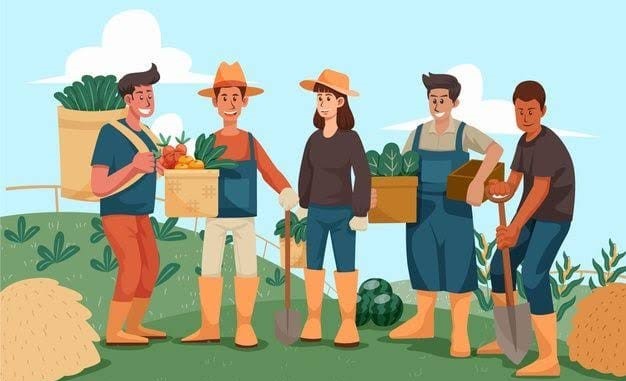
As an influential link between producer and consumer, the F&B industry has a unique ability to shape our food system by supporting small businesses and ethical farming and fishing practices. In this article, The Sustainable Restaurant Association explores why this matters and what it means for your restaurant.
What does it mean to support farmers and fishers?
Responsible sourcing starts at the very beginning of the supply chain, and includes taking care of the real people who grow, gather and harvest the produce you buy, as well as the communities and local environments where they live and work. It means guaranteeing a living wage for producers and supporting environmentally positive farming and fishing practices. For foods you can source locally, this is relatively easy to manage; it becomes trickier when you’re looking for exotic or out-of-season ingredients from other countries.
Why supporting farmers and fishers is important
Small-scale farmers and fishers are the backbone of global food production, but routinely earn under half of what their larger counterparts do. Developing countries provide cheaper labour to cater to the growing demands of wealthier markets, and this can have a devastating effect on local communities. Farming and fishing communities like these – often in the Global South – are among the most vulnerable to the impacts of the climate crisis, economic shocks and social instability. Many agricultural supply chains also carry a high risk of human rights issues, including forced, exploitative and child labour.
If we are to build a more sustainable food system that can mitigate climate change and ensure food security for everyone, then farmers and fishers have an invaluable part to play. Ensuring that the human rights of these workers are upheld – and that the practices they use to produce our food are not environmentally damaging – is critical. For restaurant operators, this is an opportunity to do better for both people and planet. Your sourcing choices can contribute to thriving farming and fishing communities and help build a more resilient global food system.
How to support farmers and fishers
Human rights considerations
Is your business supporting small businesses, local economies, families and communities? Ensure that your terms or trade are thorough, just, clearly defined and of benefit to the people at the other end of the supply chain. This includes fair pricing and timely payment; transparent and regular communication; agreed-upon dispute and/or conflict resolution procedures; and clearly outlined employment standards for farmers and fishers.
Have you carried out a human rights risk assessment across your supply chains? Look for suppliers that are aligned with international voluntary standards related to upholding human rights, and make a commitment to eradicating child and forced labour from your supply chains.
Environmental considerations
When it comes to the environment, are you using your sourcing policies to encourage environmentally-friendly practices, such as regenerative farming and sustainable fishing? One way to make a tangible difference is by putting in place agreements that guarantee income for the producers in your network while they make changes, e.g., committing to a regular order over 2-3 years while they achieve organic certification.
Sourcing from diverse producer organisations fosters economic growth and ensures that money and power are not concentrated in the hands of the few. Prioritise sourcing from small-scale farms and fisheries, or those in disadvantaged communities; cooperatives or community-run farms or fisheries; social enterprises; or minority- or female-owned and/or farms or fisheries.
Pay particular attention when it comes to high-risk products. For these products, there’s more of a risk of social and/or environmental abuse in supply chains, including forced or exploitative labour, child labour, land conflicts, climate change, the use of destructive chemicals, deforestation, biodiversity loss and contributing to drought. High-risk foods include:
- Avocados
- Bananas
- Beef
- Chillies
- Chocolate and/or cocoa
- Citrus fruit
- Coffee
- High-risk seafood products (including shellfish and seaweed)
- Nuts, including coconuts
- Palm oil (or products containing palm oil)
- Rice
- Soy (or products containing soy)
- Sugar
- Tea
For businesses that don’t take extra care in sourcing these foods, the issues inherent in these supply chains can often translate to reputational and financial risks. Using third-party certifications like Fairtrade and Rainforest Alliance – especially for high-risk items – is one way to ensure that the farmers and fishers in your supply chain are being treated fairly. We’ve seen some businesses take this a step further, reducing their reliance on these ingredients or even eliminating them from menus altogether.
Share your story
Communicating about your support of farmers and fishers is key. For staff and suppliers, this can help guide buying decisions and inform better practice in the wider network. Providing information on your ethical sourcing practices is also a valuable way to attract customers and, increasingly, employees; moreover, it contributes to the broader discourse, educating more people about these issues and helping to make ethical sourcing practices the norm.
Find The Sustainable Restaurant Association on Instagram and Linkedin and sign up to our newsletter for more updates, events and insights.
